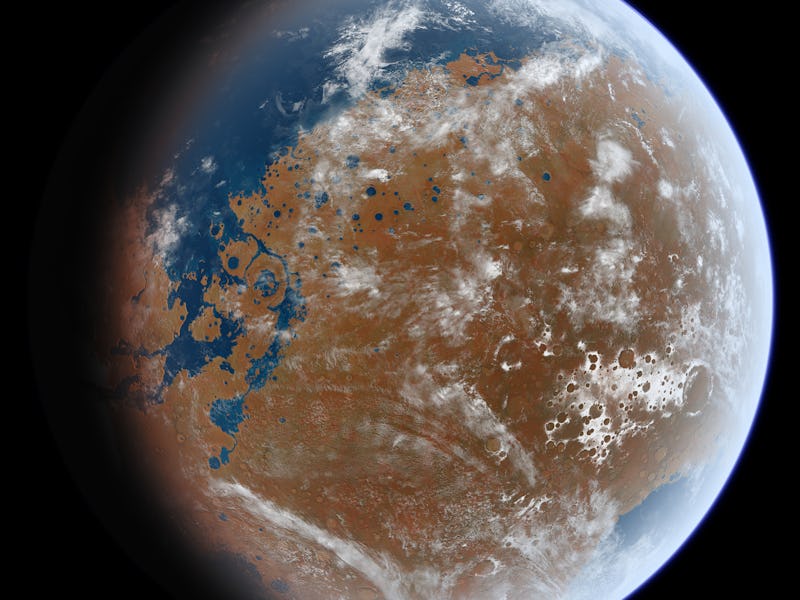Martian Lakes Might Have Been Home to Ancient Aliens
New paper suggests ancient lakes could have sustained a habitable environment.

We’ve long known that a Mars of eons past boasted incredible oceans and lakes on its surface. There’s a lot of hope among the space community that those ancient wetlands may have perhaps been home to extraterrestrial life. Those hopes just got another boost from a new paper that suggests a particular site home to ancient lakes could have sustained a habitable environment — and as a result, might have been home to alien life.
The paper’s authors, scientists at the Planetary Science Institute based in Tucson, Arizona, investigated a region of the planet close to a large volcanic plateau and found that groundwater circulation beneath the surface helped create some of the biggest lakes Mars ever had.
It seems these basins might have been alternately covered by lava and water over the course of hundreds of millions of years. The temperature ranges, combined with the presence of water and necessary nutrients, put this spot in a better position to have been habitable to life than most other parts of Mars.
In other words: Early discharge of water close to high thermal activity means warm Martian lakes — and life, as far as we know, thrives in moderate climates.
Of course, these lakes would have probably still boasted a harsh environment, due to the planet’s cold overall temperatures and thin atmosphere. The study’s researchers speculate that if these ancient lakes on Mars were indeed habitable, they would have been similar to Tibet here on Earth, “where high mountain lakes show unique sets of landforms that might explain some basin interior features in the studied region of Mars.”
Perspective views of the Marian Lakes and an analog lake in the Tibetan plateau. The arrows in both panels identify similar ridges that surround the basin's floor.
In a collaboration with the Chinese government, the researchers are set to soon visit the Tibetan region this summer and take a closer look at habitats that could be analogous to the ancient Martian lakes.
Hot off the heels from the confirmation of liquid water on the surface of Mars, this study is just the second in a string of new research looking into the potential habitability of the red planet.
We’re a long ways away from actually confirming whether life exists or once did exist on Mars, but it’s pretty awesome to see that scientists are just as interested as the public is in answering that question.